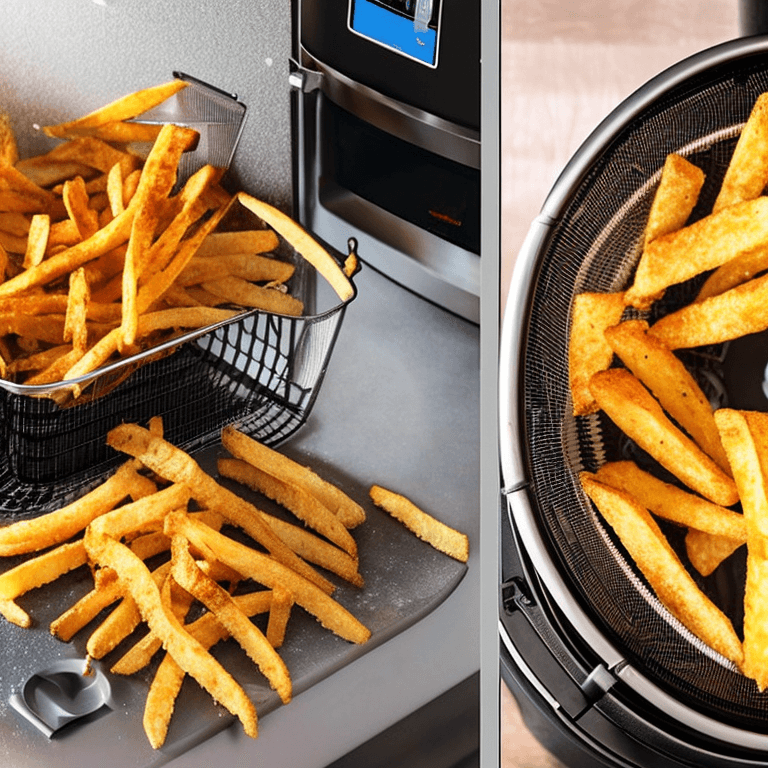
An air fryer is essentially a compact convection oven that circulates hot air rapidly, while a traditional oven provides more even, ambient heat for larger dishes. The key difference comes down to speed and capacity - air fryers cook faster for small batches, while ovens handle bigger meals better.
Air fryers use rapid air technology to circulate superheated air around food at high speeds, creating that desirable crispy texture with minimal oil. Conventional ovens, whether fan-assisted or not, rely on radiant heat that takes longer to penetrate food. This makes air fryers ideal for quick weekday meals when you want crispy air fryer recipes without the wait.
Fan ovens share some similarities with air fryers since both use circulating air, but the crucial difference lies in the intensity. An air fryer's compact size means the hot air moves much faster in a concentrated space, while oven fans distribute heat more gently across a larger area. That's why air fryers excel at crisping up frozen foods or reheating leftovers that would go soggy in a regular oven.
When comparing air fryer vs oven energy use, the compact appliance wins hands down. Preheating an air fryer takes just 3 minutes versus 10-15 for most ovens, and they use about half the electricity per meal. For smaller households or those cooking for one, this can lead to noticeable savings on bills over time, making air fryers worth it for energy-conscious cooks.
In our tests, air fryers consistently deliver crispier results for foods like chips, chicken wings, and frozen snacks compared to conventional ovens. The rapid air circulation creates that perfect golden crunch without needing to drown food in oil. However, ovens still reign supreme for roasting whole chickens, baking cakes, or preparing large family meals where an air fryer's capacity falls short.
One area where the difference between air fryer and oven becomes clear is moisture retention. The intense air flow can dry out some foods if not monitored, whereas ovens provide a gentler environment for dishes like roast chicken or baked goods. This makes ovens better for slow-cooked meats or delicate pastries that need even, steady heat rather than the aggressive air circulation of a fryer.
For busy households wanting quick, crispy results with minimal cleanup, air fryers are hard to beat. They're perfect for preparing roast potatoes, reheating pizza, or making quick snacks without firing up the whole oven. But if you regularly cook large joints of meat or batch bake, a conventional oven remains essential despite the longer cooking times and higher energy use.
Air fryers obviously win on counter space versus built-in ovens, but their compact size means you're limited to cooking for 2-4 people max. Modern ovens with good fan-assisted settings can mimic some air fryer results, especially if you use a perforated tray to improve air flow. However, nothing replicates that intense crisping effect quite like a dedicated air fryer's concentrated heat vortex.
Cleaning is another factor - air fryer baskets and drawers are generally easier to clean than oven trays and racks, especially if you use proper air fryer cleaning techniques. The non-stick surfaces wipe clean quickly, while oven cleaning often requires harsh chemicals or intensive scrubbing to remove baked-on grease and food residue.
While both appliances use heated air to cook, an air fryer isn't simply a miniature oven. The engineering differences create distinct cooking results - air fryers achieve crispiness through rapid air movement that would be impossible in a standard oven's larger cavity. This makes them particularly good for achieving that fried texture without actual deep frying, hence the name.
If you frequently cook small portions of crispy foods like chips, nuggets, or wings, an air fryer will likely become your most-used kitchen gadget. They're perfect for students, small families, or anyone wanting to reduce oil consumption while keeping that satisfying crunch. Our air fryer conversion chart makes it easy to adapt your favourite oven recipes.
However, if you regularly entertain large groups or bake elaborate dishes, you'll still need a conventional oven alongside your air fryer. Many households find having both gives them the flexibility to choose the right tool for each meal - quick air frying on weeknights and traditional oven cooking for weekends or special occasions.
Considering their versatility and energy savings, most home cooks find air fryers worth the investment, especially with prices starting under £100. They pay for themselves over time through reduced electricity bills and takeaway savings when you can quickly make crispy favourites at home. For those wondering "should I get an air fryer?", the answer is usually yes - as a complement to, rather than replacement for, your main oven.